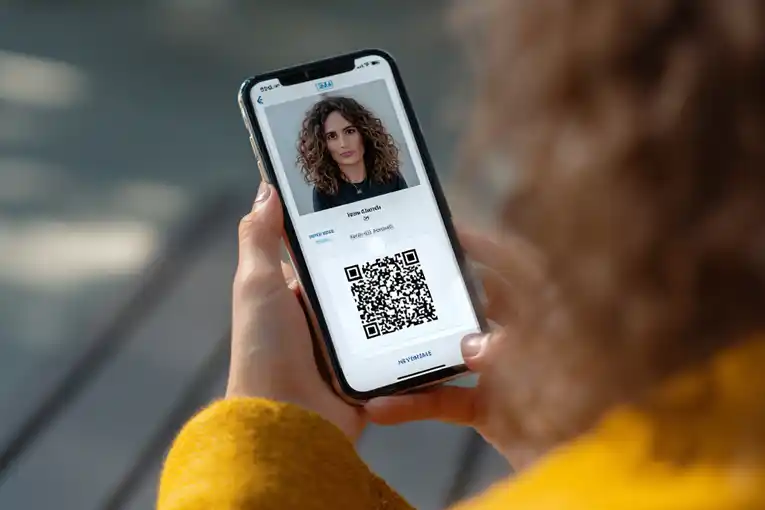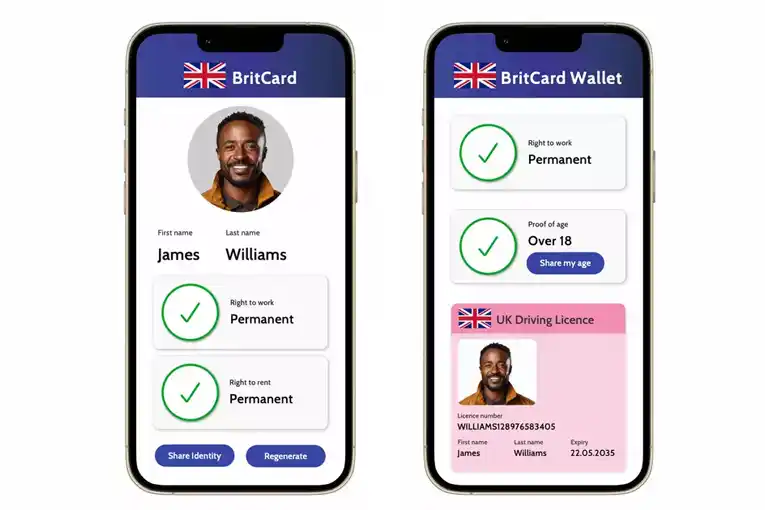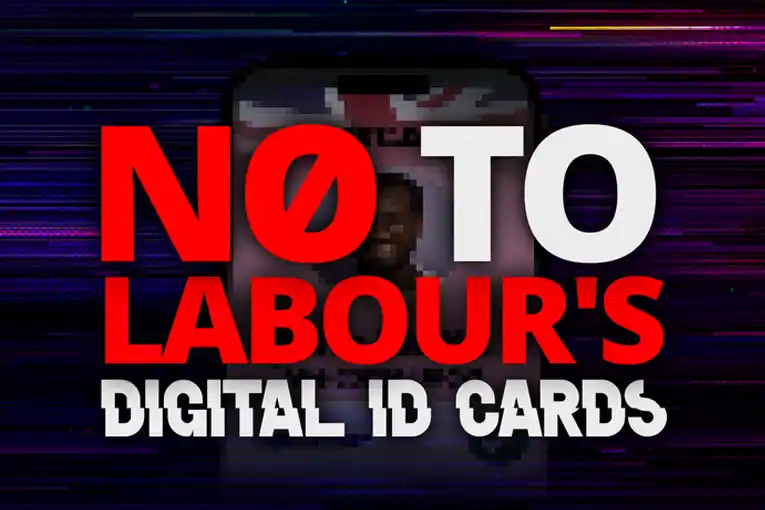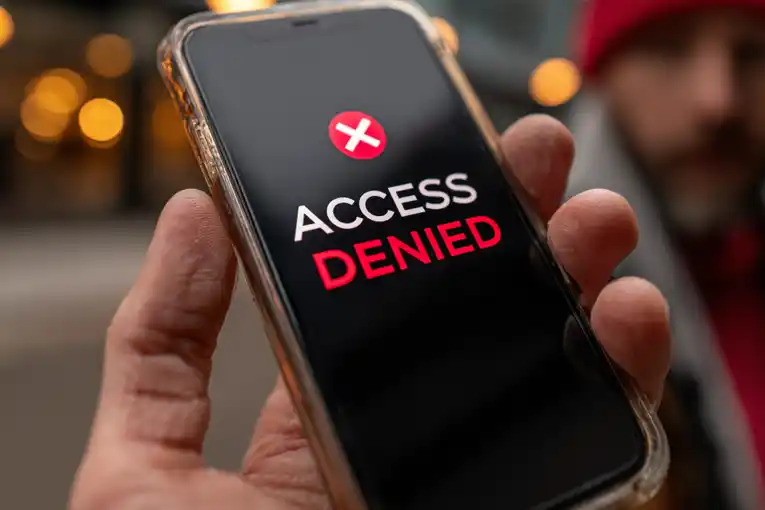Cyber Security News Aggregator
.Cyber Tzar
provide acyber security risk management
platform; including automated penetration tests and risk assesments culminating in a "cyber risk score" out of 1,000, just like a credit score.BritCard – Pros and Cons of the UK Digital ID
published on 2025-10-01 07:00:33 UTC by Simon BurgeContent:
The BritCard is the UK’s newly announced mandatory digital ID, unveiled by Prime Minister Keir Starmer on 26 September 2025.
It will be required by all British residents by the end of the current Parliament in 2029 and will function as a digital identity stored on smartphones, primarily to prove eligibility to work and access public services.
This announcement has sparked one of the most divisive debates in recent political memory.
Supporters argue it will help combat illegal immigration, reduce fraud, and modernise access to services.
Opponents, however, see it as an unnecessary intrusion into private life, a dangerous expansion of government power, and a step towards a surveillance state.
What is a Digital Identity?

A digital identity is an electronic record that proves who you are.
Instead of producing a passport, driving licence or bank statement, a digital identity lets you confirm your identity online or in person using a secure, government recognised system.
Digital identity systems can store attributes such as your name, date of birth, driving licence number, and even your qualifications.
They can then be used to prove eligibility, confirm age, or log into official services without showing physical documents every time.
Many countries already use some form of digital ID.
Estonia for example, is often cited as the gold standard, where digital IDs are used for voting, healthcare, banking and even signing contracts.
The UK, however, has historically resisted introducing a compulsory identity card, which makes the BritCard debate particularly controversial.
What is the Digital Identity Trust Framework?
The BritCard will operate within the Digital Identity and Attributes Trust Framework, overseen by the Office for Digital Identities and Attributes (OfDIA).
This framework sets the standards for how digital identities are created, verified, and used across both public and private sectors.
The framework is meant to ensure security, privacy, and interoperability between different systems.
For example, a BritCard could be used not only for government services but also for banking, online purchases, and travel; all under a common set of rules.
Critics, however, say this concentration of personal data into a single system creates a single point of failure, making it attractive to hackers or open to misuse by the state.
Why Does the UK Government Want to Introduce BritCard?

The government’s stated aim is to clamp down on illegal working in the UK.
By requiring every adult to hold a BritCard, employers would be able to verify instantly whether someone has the right to work.
Ministers claim this could recover up to £500 million a year from the £8 billion black economy linked to undocumented labour.
However, opponents argue this justification is flimsy.
Most illegal migrants work in cash-only environments where no documentation is required, meaning a digital ID will do little to disrupt people smugglers or informal labour markets.
In the days following the announcement, the government appeared to broaden its justification, suggesting BritCard could also be used to streamline access to healthcare, welfare, and other services.
This so-called “mission creep” has raised alarm bells, with fears that the card could become an all-purpose tool for surveillance and control.
The political optics are also difficult.
The policy has backing from the think tank Labour Together and echoes proposals made by Tony Blair two decades ago, which were defeated after fierce public resistance.
Today, opposition comes not just from traditional critics on the right but also from voices on the left, including Labour figures like Jeremy Corbyn and commentators such as Owen Jones.
Remarkably, the issue has united figures as politically diverse as Nigel Farage and Corbyn in their condemnation of the plan.
Public Response to UK Digital ID

The public backlash has been swift and severe.
A petition on the official UK Parliament website titled “Do not introduce Digital ID cards” had only a modest number of signatures before Starmer’s announcement.
Within days, it had surged past 2.5 million signatures, automatically triggering a parliamentary debate.
Protests have taken place outside the Labour Party Conference in Liverpool, where large crowds voiced their anger not only at the BritCard proposal but also at Starmer’s leadership more broadly.
Inside the party, divisions are growing.
Polls show more than half of Labour members want Starmer to resign, with Manchester Mayor Andy Burnham emerging as a potential challenger to replace him.
The sense of betrayal is a recurring theme among critics.
Because a mandatory digital ID was not included in Labour’s election manifesto, many voters feel the government has no democratic mandate to impose such a significant change on personal freedoms.
Arguments in Favour of a UK Digital ID

Proponents argue that BritCard could bring significant benefits across society. Here are the main points in favour:
Combat Illegal Working
The government’s headline argument is that BritCard will make it harder for undocumented migrants to find employment.
While this resonates with some voters, experts argue the impact will be limited given the prevalence of black-market jobs that operate outside formal checks.
Security and Scalability
Supporters say a digital ID will modernise how Britain manages identity, aligning the UK with countries like Estonia and India.
A unified system could reduce duplication, streamline bureaucracy, and enhance trust in online transactions.
Convenience
For everyday citizens, BritCard could replace the need to carry multiple documents.
Proof of age at shops, the right to rent a property, or logging into government services could all be handled via One Login.
Age Verification
With growing concerns about children accessing harmful content online, the Online Safety Act was passed.
BritCard could provide a universal, privacy-respecting way to verify age without sharing unnecessary personal details.
Reduce Fraud
Digital IDs can incorporate biometrics and advanced encryption, making them harder to forge than traditional documents.
This could help cut down on identity theft and benefit fraud.
Access to Public Services
From healthcare to education, having a secure digital ID could streamline access to government services.
It could also help the millions of people who struggle with lost or outdated documents.
Free of Charge
The government has promoted BritCard as being free to citizens.
Critics counter that while individuals may not pay directly, taxpayers will foot the bill for what is expected to be a multi-billion-pound system.
Arguments Against a UK Digital ID

While the benefits are compelling, opponents raise equally serious concerns.
Civil liberties groups such as Big Brother Watch, campaigners and members of the public warn that BritCard could open the door to unintended consequences.
Government Overreach
For many, the word “mandatory” evokes fears of creeping authoritarianism.
A centralised digital ID system could, in theory, be expanded to monitor every aspect of citizens’ lives, from what they buy to where they travel.
Privacy and Security Concerns
Centralising personal data makes it a prime target for cybercriminals.
Recent cyberattacks on European airports, including Heathrow, show how vulnerable large systems can be.
A breach of BritCard could expose millions of people’s most sensitive information.
Loss of Privacy
Critics argue that mandatory digital IDs fundamentally change the relationship between citizen and state.
Instead of assuming freedom unless restricted, individuals must constantly prove who they are to access basic rights and services.
Centralised Control
By putting so much power in the hands of government systems, BritCard could erode personal autonomy.
Decisions about access to jobs, housing, or healthcare could ultimately depend on whether your digital ID is recognised.
Target for Hackers and Foreign Adversaries
A centralised or widespread ID system becomes a prime target for cyberattacks.
If breached, the cybersecurity fallout could affect millions of citizens at once.
“Papers Please” Society
Civil liberties advocates argue that a digital ID risks turning everyday interactions into ID checks.
Critics fear a society where proving your identity becomes routine, eroding freedoms.
Restrictions on Freedoms
Once digital IDs are introduced, they can easily be tied to financial transactions, travel, or social media, for example.
This could lead to restrictions on dissent and an erosion of civil liberties.
Opponents also warn that tying essential services to digital ID could exclude those who refuse to participate or lack access to technology, effectively creating a “digital prison” for the digitally excluded.
Social Credit System
Campaigners often point to China’s social credit system, where access to services can be restricted based on behaviour.
While the UK government denies any such intentions, the parallels worry many civil liberties groups.
Will the BritCard UK Digital ID Be Mandatory?
Yes. The government has confirmed BritCard will be compulsory for all British residents.
Lisa Nandy, Secretary of State for Culture, Media and Sport, stated on national television that BritCard would be required to prove the right to work and access services.
The implications are far-reaching.
Every adult will need to carry a digital ID, raising questions about digital exclusion for those without smartphones, as well as how enforcement will work in practice.
Critics warn that once such a system is embedded, opting out will be virtually impossible.
What Other Countries Have a Digital ID?
The UK is far from alone in moving towards digital identity systems.
Estonia is often cited as a model, with a highly advanced digital ID integrated into almost every aspect of daily life.
India’s Aadhaar system covers over a billion citizens, linking identity to services and benefits.
Many other countries, including Canada, Australia, Switzerland, South Korea, the UAE, and most of the European Union, are developing or rolling out similar initiatives.
In the United States, digital driver’s licences are gaining traction in several states.
This global trend has prompted some observers to link BritCard to broader initiatives promoted by international organisations such as the World Economic Forum and the United Nations’ Agenda 2030.
Critics see this as part of a coordinated shift towards requiring digital IDs to access healthcare, financial services, food, travel, and even social media.
Key Takeaways
The BritCard represents one of the most ambitious and controversial digital reforms in modern UK history.
Its supporters argue it will modernise the economy, reduce fraud, and streamline access to services.
Its opponents see it as an unnecessary, costly, and dangerous experiment that threatens personal freedom.
What is clear is that this is no longer a hypothetical debate.
The policy is real, it is mandatory, and it is coming within this parliamentary term.
The public backlash has already been overwhelming.
The months ahead will determine whether BritCard becomes a defining achievement of the Starmer government, or a political disaster that reshapes the national debate on freedom and identity for years to come.
https://securityjournaluk.com/britcard-uk-digital-id/
Published: 2025 10 01 07:00:33
Received: 2025 10 01 18:23:14
Feed: Security Journal UK
Source: Security Journal UK
Category: Security
Topic: Security
Views: 14
